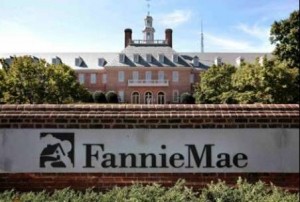

Lenders can make their own decisions about the riskiness of these loans. Department of Agriculture (USDA), the Federal Housing Administration (FHA) or the Department of Veterans Affairs (VA).Ī portfolio loan is a mortgage that Fannie and Freddie won’t buy, so it stays in the lender’s portfolio. Government-backed loans also include programs offered by the U.S. If a mortgage goes bad, the lenders aren't on the hook for it. The GSEs package the mortgages into securities sold to investors, making home financing more widely available. Some mortgage lenders won’t make a loan unless they can sell it to Fannie Mae or Freddie Mac, so-called government-sponsored enterprises (GSEs). Whether the government is willing to back a loan is a crucial factor in the ability of most Americans to get mortgages. “These are two highly regulated industries that want to work together but don’t know how,” Dunford said in an interview.

Green Check Verified is one company that serves as “a bridge between financial services and cannabis businesses,” according to co-founder Paul Dunford. Work with a Cannabis Industry Financial Services CompanyĪs the cannabis industry grows, so has the availability of firms that connect the industry with financial services. However, in some circumstances cannabis workers can qualify for government-backed home loans. government’s commitment to helping ordinary Americans realize the benefits of home ownership, most cannabis workers don’t have an easy route to mortgages. According to the FHA Single Family Policy Handbook, mortgage originators “may only consider income when it is legally derived.”ĭespite the U.S. And What about Mortgages?Īccess to loan products, including mortgages, can be even more complicated. Tip : Looking to buy soon? Set yourself up for having your offer accepted on a home by getting preapproved for a mortgage prior to your home search. In the eyes of federal officials, marijuana has no accepted medical use and a high potential for abuse.įor the nearly half a million Americans working for the legal cannabis industry in states that permit the sale of medical or recreational marijuana, this presents an interesting problem: Accessing financial services that most Americans take for granted.Įven getting a checking account can be difficult, with some banks turning away cannabis workers out of a fear that the feds might perceive their paychecks as a form of money laundering. Since 2017, that’s a gain of nearly 350%, and as marijuana becomes legal in more places, that number likely will continue to climb.īut as a Schedule 1 Controlled Substance, marijuana remains illegal at the federal level. There are 428,059 full-time jobs in America’s cannabis industry, according to the 2022 marijuana jobs report by Leafly. When foreclosures arise on mortgages in which Fannie Mae is the owner/backer, or when properties are acquired through deeds in lieu of foreclosure or forfeiture, Fannie Mae attempts to sell the properties in a timely manner to minimize potential impacts on the community.As the use of legal cannabis has spread throughout the U.S., with a subsequent boom in cannabis jobs, so has access to mortgages for people who work in the industry. HomePath includes only properties Fannie Mae owns, including single-family homes, townhouses, and condominiums Fannie Mae uses local real estate professionals to list the properties for sale.When mortgages Fannie Mae owns or backs enter foreclosure, Fannie Mae attempts to sell the properties quickly to minimize the potential impact on the community.Fannie Mae does not lend money directly to consumers-it keeps money flowing to lenders like banks and credit unions through purchasing and guaranteeing mortgages.Fannie Mae exists to expand the liquidity of home mortgages by creating a secondary mortgage market.Fannie Mae (the Federal National Mortgage Association or FNMA) is a government-sponsored enterprise (GSE) established in 1938.


 0 kommentar(er)
0 kommentar(er)
